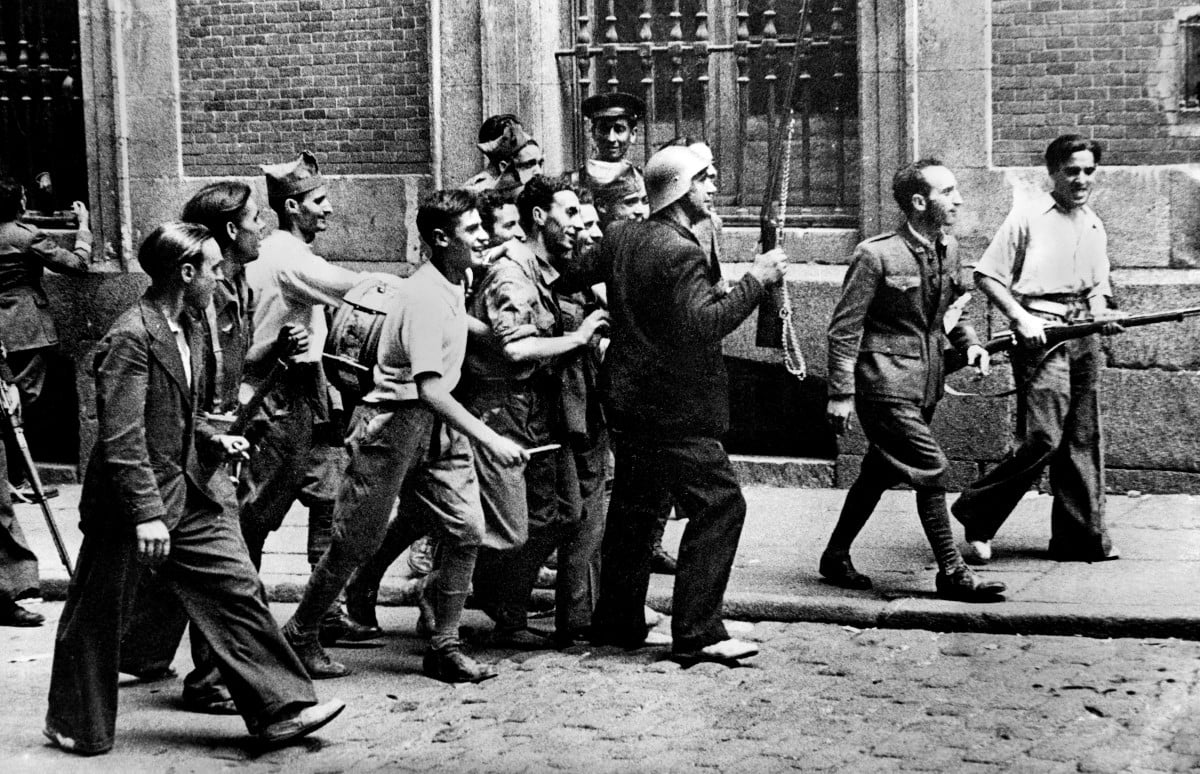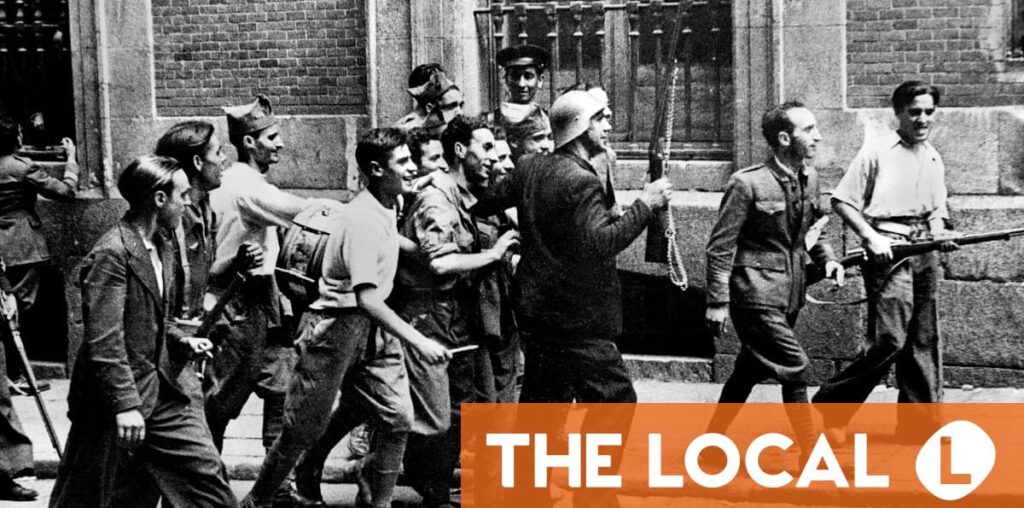
During the ensuing 35-year-dictatorship of General Francisco Franco, cinema was used as a propaganda machine which churned out movies venerating church, state, and the victory of Franco’s forces over communism.
There was censorship at home and no one abroad dared to tackle the bloodiest conflict in modern Spanish history.
But ever since El Caudillo died in 1975, the Spanish Civil War has fascinated local and foreign filmmakers, some dramatizing true stories and others using the conflict as a backdrop.
Here is a selection of some of the best films that tell us something about the wrenching upheaval of that wartime period.
Advertisement
Freedomfighters (Libertarias, 1996)
Director Vicente Aranda sets his film centering on the lives of women in Barcelona at the outbreak of civil war. Maria, a young nun, joins a local feminist militia fighting against Franco’s forces and, mixing with anarchists, prostitutes and discovers the social injustices of life beyond sheltered cloisters and what it means to be a woman.
Butterfly Tongue (La Lengua De Las Mariposas, 1999)
A poignant coming of age film set in rural Galicia traces the friendship between schoolboy Moncho and his anarchist-leaning teacher, Don Gregorio, in the months leading up to the uprising by General Franco. As political tensions grow, village life becomes overshadowed by fear, brutality and the horror of impending war.
Land And Freedom (Tierra y Libertad, 1995)
Ken Loach’s critically acclaimed film focuses on the International Brigades, that group of idealistic young foreigners determined to fight fascism. Following the journey of a young British communist from the frontline where he is wounded to Barcelona, the film reveals the bitter internal struggles within the republican movement that ultimately assisted the fascists’ victory.
¡Ay, Carmela! (1990)
A comedy by Carlos Saura, set in 1938. ¡Ay, Carmela! follows a travelling theatre company who are captured by Fascist forces after inadvertently crossing into hostile territory. Offered the chance of release if they’ll perform for fascist soldiers, the film raises the question of just how far one will compromise beliefs for the sake of survival.
The Soldiers of Salamis (Soldados de Salamina, 2003)
David Trueba’s film adaptation of the best-selling novel Soldados de Salamina by Javier Cercas tells the story of a journalist commissioned to write about a Falangist writer who escaped the firing squad. As she researches the story she learns just how closely the past is wrapped up in the present on a search for truth that becomes a quest of self-discovery. Nominated for 8 Goya awards, it won best cinematography.
There Be Dragons (Encontrarás dragones, 2011)
British writer-director Roland Joffé explored themes of faith, friendship, love and betrayal in his story about a journalist investigating a recently canonised priest and discovers his own family’s dark connections with the past.
The Sleeping Voice (La Voz Dormida, 2011)
The critically acclaimed film by director Benito Zambrano follows the fate of two sisters in the aftermath of the Spanish Civil War. Pregnant Hortensia is thrown in a Madrid jail after Franco’s forces catch her trying to help her Republican husband and the story charts her sister’s battle to save her from the firing squad and ensure the child remains with the family and isn’t put up for adoption or into an orphanage.
Based on the novel by Dulce Chacón, which won the 2003 Spanish Book of the Year.
The Age of Beauty (Belle Epoque, 1993)
Director Fernando Trueba’s romantic comedy set in the run up to the Spanish Civil War won the Best Foreign Film Oscar in 1993. Starring a youthful Penelope Cruz as one of four sisters who compete for the heart of Fernando (Jorge Sanze), a deserter from the Nationalist army who goes on the run in rural Spain and hides out with Republican leaning painter and his family.
The Heifer (La Vaquilla, 1985)
The first comedy to be written about the Spanish Civil War, Luis García Berlanga’s La Vaquilla (The Heifer) is set on the frontline in Aragon and tells the slapstick tale of a misguided plan by Republican soldiers to disrupt a fiesta planned by Nationalists. The platoon plot to sneak into enemy territory and steal away the bull destined for the enemy’s celebratory bullfight, not only to score a minor victory and destroy morale but because they are starving and crave meat.
The 13 Roses (Las 13 Rosas, 2007)
Based on the true-life story of 13 women sentenced to death by a military court for crimes they didn’t commit, this film directed by Emilio Martínez Lázaro is set in the first days of the Franco dictatorship when those with even dubious links to the Republican cause were rooted out and punished.
While the War Lasts (Mientras Dure la Guerra, 2019)
Acclaimed director Alejandro Amenábar is behind this portrait of the Civil War seen from the perspective of one of the greatest Spanish writers of his time, Miguel de Unamuno, who controversially supported the military coup.

